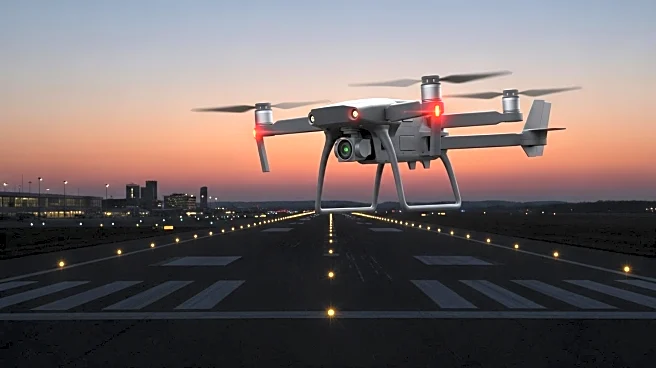What's Happening?
Danish airports, including Aalborg Airport, experienced significant disruptions due to unexplained drone overflights. The incidents, which occurred overnight from Wednesday into Thursday, led to the temporary closure of Aalborg Airport, a facility also used by the Danish military. Defense Minister Troels Lund Poulsen suggested that a 'professional actor' might be responsible for these systematic drone flights. The Danish Minister of Justice, Peter Hummelgaard, emphasized that the goal of these flyovers was to instill fear and division. The incidents follow a similar disruption at Copenhagen Airport earlier in the week, raising concerns about potential foreign involvement, although no direct evidence has been found linking the incidents to Russia.
Why It's Important?
The drone incursions at Danish airports highlight vulnerabilities in critical infrastructure and raise questions about national security. The incidents have prompted Danish authorities to consider new legislation allowing infrastructure owners to neutralize drones. The situation underscores the potential for drones to be used in hybrid attacks, which could disrupt not only air travel but also military operations, given the involvement of military bases. The events have also sparked discussions about international security, with NATO being considered as a platform for response. The potential for foreign involvement, particularly from Russia, adds a geopolitical dimension to the issue, although such links remain speculative at this stage.
What's Next?
Danish authorities are investigating the incidents and considering legislative measures to enhance drone detection and neutralization capabilities. The government may propose a bill to allow infrastructure owners to shoot down drones. Additionally, Denmark might engage with NATO allies to discuss collective security measures. The ongoing investigation will focus on identifying the source of the drones, with some suspicion directed towards ships in nearby waters. The outcome of these investigations could influence future security protocols at airports and other critical infrastructure sites.











